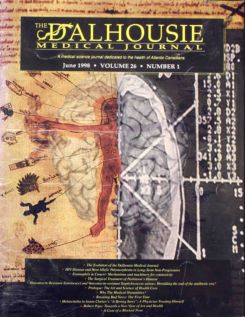HIV-Disease and Host Allelic Polymorphism in Long-Term Non-Progressors
DOI:
https://doi.org/10.15273/dmj.Vol26No1.4419Abstract
Since its recognition in the early 1980's, Acquired Immunodeficiency Syndrome (AIDS) has become a pandemic, and in 1997 it was estimated that 30-40 million individuals worldwide are infected with the Human Immunodeficiency Virus (HIV). While it remains an incurable and potentially devastating infection, particularly in regions where modern health care is unavailable, recent years have seen striking advances in the understanding of AIDS pathology, development of diagnostic modalities, and rational design of new treatments. Recently it has been recognized that there exists a subset of individuals who, while infected with HIV, remain asymptomatic with regard to the classical manifestations of AIDS. These individuals have been called “long-term survivors” or “long-term non-progressors” (LTNPs). Similarly, there appears to exist a subset of exposed-uninfected individuals who, while exposed to virus multiple times, remain uninfected. This article reviews the current understanding of how these individuals remain resistant to HIV progression.
Downloads
How to Cite
Issue
Section
License
Authors who publish with this journal agree to the following terms:
- Authors retain copyright and grant the journal right of first publication with the work simultaneously licensed under a Creative Commons Attribution License that allows others to share the work with an acknowledgement of the work's authorship and initial publication in this journal.
- Authors are able to enter into separate, additional contractual arrangements for the non-exclusive distribution of the journal's published version of the work (e.g., post it to an institutional repository or publish it in a book), with an acknowledgement of its initial publication in this journal.
- Authors are permitted and encouraged to post their work online (e.g., in institutional repositories or on their website) prior to and during the submission process, as it can lead to productive exchanges, as well as earlier and greater citation of published work (See The Effect of Open Access).


